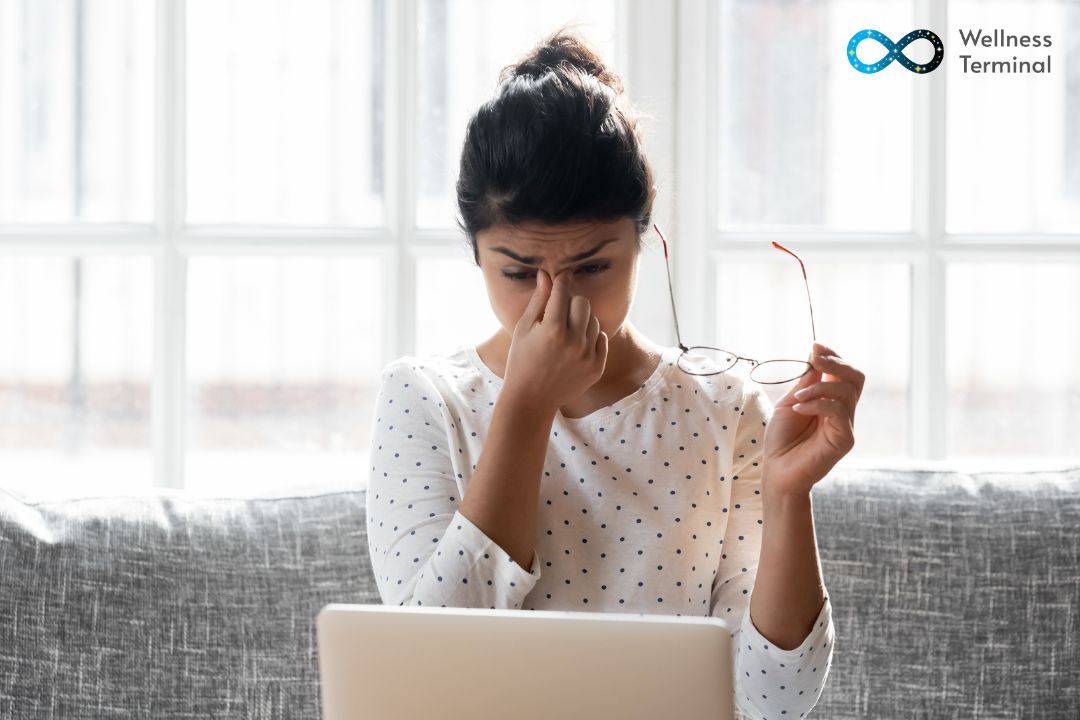We've all heard about the harmful effects of blue light emitted from screens, but what can we do to reduce our exposure? Whether it's your laptop, phone, or TV, most of us spend a lot of time in front of screens, and it's important to take steps to protect our eyes and overall health. In this blog, we'll explore some tips and tricks to reduce your exposure to harmful blue light and minimize its impact on your wellness.
First up, let's talk about blue light and why it's harmful. Blue light is a type of light that's emitted from electronic screens and can disrupt our natural sleep cycle, leading to insomnia and other sleep-related issues. It can also cause eye strain, headaches, and even damage to the retina. So, what can we do to protect ourselves?
One simple solution is to use blue light-blocking glasses. These glasses have lenses that are designed to block out blue light and reduce the strain on your eyes. They come in various styles and can be worn while using your electronic devices or even while watching TV. They're a great investment for anyone who spends a lot of time in front of screens and wants to protect their eye health.

Another way to reduce your exposure to blue light is to adjust the settings on your electronic devices. Most smartphones and computers have a blue light filter that you can activate to reduce the amount of blue light emitted. This can make a big difference in reducing eye strain and improving your sleep quality. Some devices even have the option to schedule the blue light filter to automatically turn on at certain times of the day, such as in the evening when it's closer to bedtime.
If you're using your devices at night, it's important to dim the brightness or use night mode to reduce your exposure to blue light. This can help your body prepare for sleep and improve your overall sleep quality.
Another tip for reducing your exposure to blue light is to take regular breaks from your devices. Set a timer for every 20–30 minutes and take a break to stretch, move your body, or simply look away from your screen. This can help reduce eye strain and prevent headaches.
Lastly, consider incorporating some natural ways to protect your eyes from blue light. Eating a diet rich in antioxidants like leafy greens, berries, and citrus fruits can help protect your eyes from damage caused by blue light. You can also incorporate supplements like lutein and zeaxanthin, which are known to protect the eyes from blue light and improve vision.
Reducing your exposure to blue light is an important step in protecting your overall health and well-being. By incorporating these tips into your daily routine, you can help reduce eye strain, improve your sleep quality, and protect your eyes from damage. Remember, it's all about finding a balance and taking care of your body and mind.

